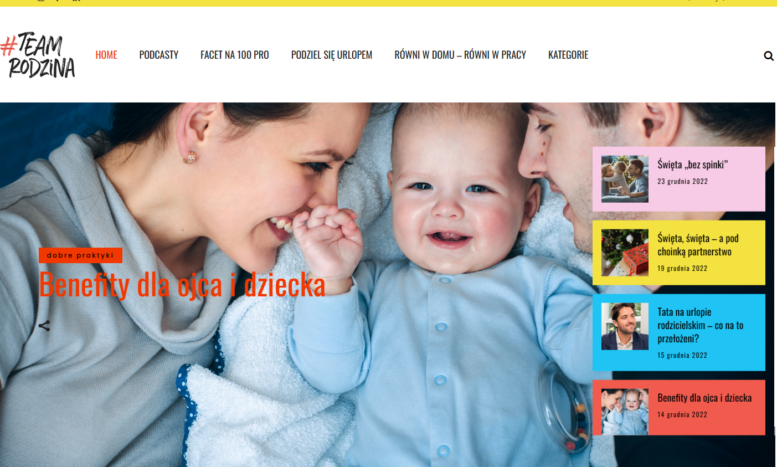The goal of the Foundation is to prepare Polish society for changes in the area of sharing childcare leave between a woman and a man.
- We invite employers to participate in joint activities promoting sharing parental leave by women and men as a tool building equality and diversity within
organisations. For more: Równi w domu – równi w pracy – Team Rodzina - We have created a publication that will allow you to look at fatherhood in a new dimension. You can download it here: Facet na 100 pro – Team Rodzina
- We create podcasts about partnership where we speak to parenting specialists, researchers, and ordinary parents. Want to listen (only in Polish)? Check out the Podcast rodzicielski – #Team Rodzina

How parental leaves look in Poland?
Currently fathers in Poland have two weeks of paternity leave (paid 100%) and 32 weeks of parental leave (based on family right) which is fully transferable (paid depending on the scheme 60% or 80%). Only 1% of fathers use parental leave, uptake of paternity leave is on the level of 56%.
The Polish government proposed new legislation (proposal bill, not passed yet) in which fathers will be granted additional 9 weeks of parental non-transferable leave, paid at the level of 70%. Share the Care Foundation strongly opposed to that and argues that 70% is not enough for young fathers to be able to exercise their right of parental leave. Although according to CBOS (Polish Public Opinion Research Center), 58% of respondents indicate that the partnership family model (where each partner works on a regular basis and shares caring and household duties) is highly preferred, in reality the reimbursement at the level of the 70% will allow only wealthy families to share parental leave. Share the Care Foundation strongly argues that the minimum acceptable level should be at least 80%.
The other contentious issue is the possibility of using parental leave by fathers together with mothers. Scandinavian countries’ experience shows that most effective way to use parental leave for fathers is using that individually without presence of mother.

